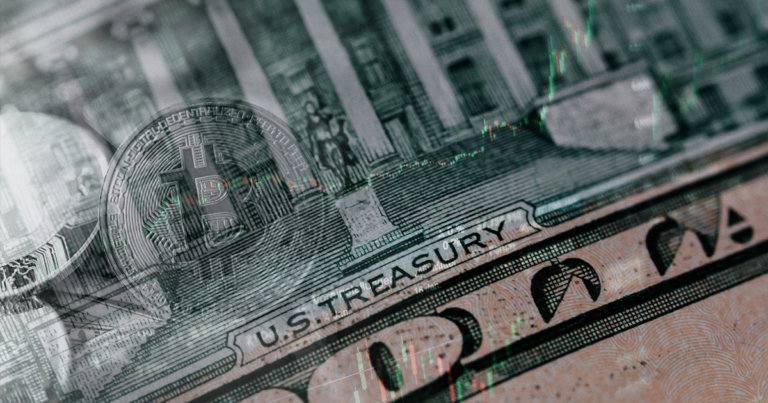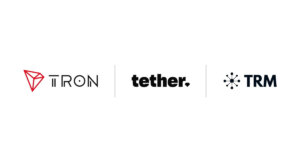 How do the recent U.S. treasury sanctions impact crypto accessibility?
How do the recent U.S. treasury sanctions impact crypto accessibility? How do the recent U.S. treasury sanctions impact crypto accessibility?
The Treasury has emphasized on several occasions that virtual currency activities are legal but there is a need to sanction bad actors that utilize these technologies for illicit gains and activities.

Cover art/illustration via CryptoSlate. Image includes combined content which may include AI-generated content.
On September 21, the US Treasury Department announced that it will sanction a crypto exchange for its role in facilitating financial transactions for ransomware actors.
The cryptocurrency exchange SUEX, a private company registered in the Czech Republic, has facilitated transactions involving illicit proceeds for at least eight ransomware variants. The Treasury Department pointed out that more than 40% of the company’s transaction history is associated with illicit actors.
This means SUEX would not be able to do business with US entities and engage with US citizens. This sanction also marks the first action against a virtual currency exchange after a string of ransomware and cyberattacks in 2020. The ransomware payments caused a total loss of $400 million in 2020 alone which is four times that of 2019.
The Treasury has emphasized on several occasions that virtual currency activities are legal but there is a need to sanction bad actors that utilize these technologies for illicit gains and activities. These new regulations have come to light with the recent attack on SolarWinds which affected several governmental agencies including Homeland Security, State, Commerce, and Treasury.
The cyber security company FireEye detected the breach and reported that there has been an attack on its sophisticated systems. Later, Microsoft also confirmed that it found signs of malware in its own systems and the breach was affecting its customers as well. The company’s disclosure was critical to detecting and understanding the extent of the attack. With such a backdrop, the government emphasized that its own knowledge about cyberattacks and breaches was the first step towards meaningful legislation for mitigation.
With sanctions and tax implications being thrown at cryptocurrency in full force, it can seem like a pessimistic outlook for investors and bankers looking to get into digital currency.
Fortunately, these new laws may do the opposite as they would provide more clarity to the crypto landscape. In fact, a more regulated trading environment may increase the approval rating of blockchain altogether.
Biden’s campaign against ransomware attacks
This spring, the Biden administration has hastened its campaign of targeting and responding to high-profile ransomware attacks including several whose origins have been traced from Russia. The Treasury has emphasized that the new sanctions are not meant to cripple the cryptocurrency landscape in the US; rather they will serve as a warning for cryptocurrency exchanges to improve their compliance and avoid illicit transactions.
With this new designation, all SUEX properties – and interests in properties that are under the jurisdiction of the US – are blocked.
Moreover, under this new law, US citizens are generally prohibited to engage in any transactions with any sanctioned entities. The financial institutions in the US that engage with these sanctioned entities will be penalized and may even be sanctioned themselves.
The advisory also states that the US entity that disobeys this designation will face a penalty if it makes payments to a sanctioned actor regardless of whether they are aware that the actor has been sanctioned.
The new advisory from the US Treasury Department also issued guidance for businesses to handle ransomware attacks. The Cyber Incident Notification Act passed in response to the attack on SolarWinds requires federal agencies, federal contractors, and critical infrastructure companies to report a ransomware attack to the Department of Homeland Security when they identify a breach.
This legislation grants companies immunity when they report a breach as the Department of Homeland Security will be required to anonymize personally identifiable information. This means that the companies can report incidents easily and the government can act efficiently.
The Treasury Department also discourages the companies to pay ransom in case of an attack or breach as it might embolden the attackers to target other organizations. The best way is to report the attack and cooperate with the law enforcement authorities.
The Deputy Treasury Secretary said that crypto exchanges like Suex are “critical to attackers’ ability to extract profits from ransomware attackers.” And therefore, regulating such exchanges may reduce the risk and frequency of ransomware attacks and improve the security of those using the exchange.
What does it mean for crypto?
What makes crypto revolutionary is its accessibility. Sanctions like this, at face value, limit bodies that promote the free trade mission of digital currency and blockchain. But as exchanges become more standardized, it may become easier for bodies like SUEX to exist. And, hopefully, in more secure forms.
The lack of regulation in cryptocurrency can lead to fraud and an increased risk of data breaches, thus making it an even more unsafe environment for crypto investors and users.
Earlier this year, SEC Chairman Gary Gensler warned that the new crypto asset class is rife with scams, frauds, and abuse in certain applications and therefore, a comprehensive regulatory framework for cryptocurrency is much needed as the industry is on the verge of a boom.
While libertarian crypto enthusiasts might not welcome tighter regulations, they are very much needed to bring the industry into mainstream adoption.
There are certain bills that have been passed by the House of Representatives and are awaiting a green signal from the Senate. This includes the Eliminate Barriers to Innovation Act of 2021 which requires SEC and CFTC to create a digital asset working group in order to ensure collaboration between regulators and the private sector to encourage innovation.
The Consumer Safety Technology Act is a combination of two blockchain bills and it requires the Secretary of Commerce and Federal Trade Commission to examine and report the use of blockchain technologies and digital tokens.
Ultimately, regulations would be highly beneficial for the crypto industry as they would provide a safety net for businesses and customers. A stricter regulation might encourage crypto skeptics to invest in the market who have been reluctant due to the largely unregulated nature of the crypto and blockchain industry.
The Biden administration is moving in the right direction to regulate these industries in order to provide better safeguards to customers against frauds and data breaches. These new regulations bring the crypto industry a step closer to a standardized regulatory framework, however, the need for a comprehensive crypto regulation still remains.



 CryptoQuant
CryptoQuant 






















































































